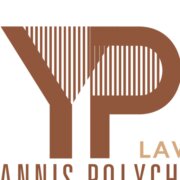Best Criminal Litigation Lawyers in Larnaca
Share your needs with us, get contacted by law firms.
Free. Takes 2 min.
List of the best lawyers in Larnaca, Cyprus
About Criminal Litigation Law in Larnaca, Cyprus
Criminal litigation in Larnaca, Cyprus, involves a legal process where an individual accused of a crime is prosecuted by the state. The objective is to determine whether the accused is guilty of the charged offense. The Cyprus justice system is based on common law principles, with criminal litigation encompassing various stages from investigation, charges, trial, and potentially appeal. Larnaca, as a district of Cyprus, follows the same criminal legal framework upheld across the island.
Why You May Need a Lawyer
There are several situations where you may require the expertise of a lawyer in criminal litigation, including:
- If you are accused of a criminal offense
- If you are arrested or detained by the police
- If you need legal representation in court
- If you are called in for police questioning
- If you seek to understand your rights within the criminal justice system
- If you need assistance negotiating a plea bargain or reduced charges
- If you are a victim of a crime and need representation
Having a lawyer can ensure that your rights are protected and that you are effectively represented throughout the criminal process.
Local Laws Overview
In Larnaca, as across Cyprus, the Criminal Code Cap. 154 outlines the general framework of criminal law. Here are some of the key aspects:
- Offenses are classified as felonies or misdemeanors, with felonies being more severe.
- The criminal process includes an investigation phase, often led by the police, followed by prosecution if sufficient evidence is found.
- The accused has several rights, including the right to remain silent and the right to legal representation.
- Trials are conducted in district courts for less severe crimes, and in assizes courts for more serious offenses.
- Punishments can range from fines and community service to imprisonment, depending on the severity of the crime.
- Appeals can be made to higher courts if there are grounds to challenge a conviction or sentence.
Frequently Asked Questions
What should I do if I am arrested?
If you are arrested, you should remain calm and request to speak to a lawyer immediately. Do not make any statements or sign any documents without your lawyer present.
Can I represent myself in a criminal case?
While you have the right to represent yourself, it is highly recommended to have a lawyer due to the complexity of criminal law and the serious implications of criminal charges.
What are the possible outcomes of a criminal trial?
Possible outcomes include acquittal, conviction, or a mistrial. If convicted, sentencing may include fines, imprisonment, or other penalties.
How long does a criminal case take to resolve?
The duration of a criminal case can vary greatly depending on the complexity of the case, the evidence, and the court’s schedule. It could range from a few months to several years.
Can I appeal a criminal conviction?
Yes, you have the right to appeal a criminal conviction to a higher court if there are legal grounds to do so.
What is bail and how is it determined?
Bail is a financial guarantee paid to ensure the temporary release of an accused person awaiting trial. The court determines bail based on factors like the severity of the crime and the accused’s likelihood of fleeing.
What are my rights during police questioning?
You have the right to remain silent and the right to legal representation. It’s important to invoke these rights if questioned by the police.
What is plea bargaining?
Plea bargaining is a process where the defendant and prosecutor negotiate a deal to resolve the case, often resulting in reduced charges or a lighter sentence in exchange for a guilty plea.
Will my case go to trial?
Not all cases go to trial. Some may be resolved through plea bargains, dismissed charges, or other pre-trial agreements.
How can a criminal lawyer help me?
A criminal lawyer can provide legal advice, represent you in court, negotiate on your behalf, and work to protect your rights throughout the legal process.
Additional Resources
Here are some resources and organizations that may be helpful:
- Cyprus Bar Association: They provide information on licensed lawyers in Cyprus.
- Legal Aid Department: Offers financial assistance for legal representation in certain cases.
- Larnaca District Court: For court procedures and case information.
- Police Headquarters: For reporting crimes and inquiries related to criminal investigations.
Next Steps
If you require legal assistance in criminal litigation, consider the following steps:
- Contact a qualified criminal lawyer experienced in Cyprus law.
- Gather and document any relevant information and evidence related to your case.
- Attend all scheduled legal appointments and court dates.
- Follow your lawyer’s advice and instructions carefully.
- Stay informed about the progress of your case and any legal developments.
Consulting with a lawyer can significantly impact the outcome of your case and ensure that your legal rights are upheld throughout the process.
Lawzana helps you find the best lawyers and law firms in Larnaca through a curated and pre-screened list of qualified legal professionals. Our platform offers rankings and detailed profiles of attorneys and law firms, allowing you to compare based on practice areas, including Criminal Litigation, experience, and client feedback.
Each profile includes a description of the firm's areas of practice, client reviews, team members and partners, year of establishment, spoken languages, office locations, contact information, social media presence, and any published articles or resources. Most firms on our platform speak English and are experienced in both local and international legal matters.
Get a quote from top-rated law firms in Larnaca, Cyprus — quickly, securely, and without unnecessary hassle.
Disclaimer:
The information provided on this page is for general informational purposes only and does not constitute legal advice. While we strive to ensure the accuracy and relevance of the content, legal information may change over time, and interpretations of the law can vary. You should always consult with a qualified legal professional for advice specific to your situation.
We disclaim all liability for actions taken or not taken based on the content of this page. If you believe any information is incorrect or outdated, please contact us, and we will review and update it where appropriate.









